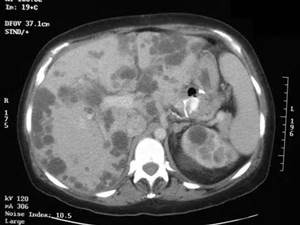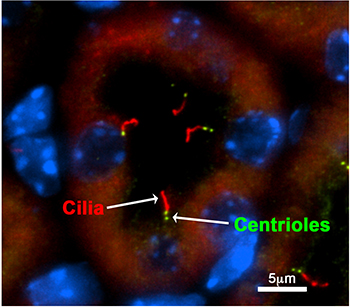The Washington University Polycystic Kidney Disease (PKD) Clinic specializes in the care of patients with PKD, a common genetic disease affecting more than 12 million people worldwide.
The focus of this clinic encompasses not only the kidney manifestations, but also extends to include the management of hypertensive, liver and vascular complications of the disease. More than 100 PKD patients are followed at this clinic.
Our close interaction with the transplant team also allows patients with progressive disease to minimize or even eliminate the need for dialysis as a bridge to transplantation. The clinic also provides patients with the opportunity to participate in medical trials designed to investigate novel therapies to slow or halt cyst growth and renal dysfunction.
The PKD clinic is headed by Dr. Seth Goldberg. Patients can be seen at either of our two locations: the Center for Advanced Medicine (CAM) at Barnes-Jewish Hospital and at Barnes-Jewish Hospital West County.
Please call 314-362-9096 to schedule an appointment.
PKD translational research

The Division of Nephrology at Washington University School of Medicine is at the cutting edge of research on cystic diseases affecting the kidney at both the basic science level and in clinical applications by translating these discoveries to patient care.
At the basic science level investigators are studying cell culture and animal models of cystic disease and the role of cilia, a cell structure implicated in pathogenesis of almost all cystic diseases of the kidneys including autosomal dominant polycystic kidney disease (ADPKD), autosomal recessive polycystic kidney disease (ARPKD), multicystic dysplasia and nephronophthisis.

Drs. Mahjoub, Jain, Miner and Chen are actively pursuing the biology of cilia in kidney progenitors using genetic models and validating them in patients with cystic kidney diseases using the Division of Nephrology supported Kidney Translational Research Core (KTRC) services.
Ongoing research attempts to uncover novel genetic mutations associated with kidney cysts, discover new biomarkers of disease course, or perform clinical outcomes measures by accessing clinical and laboratory data of consented patients in a de-identified manner. Collaboration with the clinical services allows for the recruitment of patients interested in helping researchers investigate the cause and mechanisms of cystic kidney diseases (currently more than 200 patients).